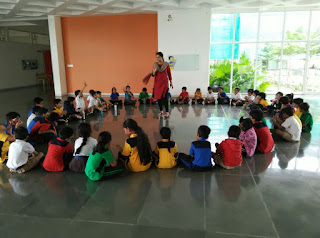I want to tell you about a very special bridge I have been fortunate
to stand on. It is a bridge between two different cultures a person had a
chance to get to know to such extent that he/she actually understands it,
accepts it fully and respects it. You look left and right and you can connect
to both the cultures in a special way and it becomes crystal clear that making
any comparisons is beyond unfair.
First time it happened to me was when I went to USA as an exchange
student to spend my senior year of high school submerged in the culture I knew
nothing of. I started off as any greenhorn on this field. USA was a
“wow”! From neatest lawns I have ever seen, to widest roads, to stores opened
24/7, to drive through ATMs, friendly people - you name it! I was
absolutely overwhelmed with everything and beyond impressed. Few months passed
and surprisingly the admiration and awe turned into something more negative. I
all of a sudden thought Americans are shallow and superficial and everything that
amazed me before turned into over done facades I no longer appreciated. I was
frantically comparing everything to my country and due to sever home sick phase
nothing could compare to my precious homeland. I call this a stage
two of the submerging into a new culture. Stage one being the “wow” stage! As I
learned later in life this “wow” stage can also be in a different context all
together. Like a “holy cow!” type of a wow stage.
Few more months passed in my USA experience, nearing a year in fact,
when for the first time this magnificent bridge appeared out of nowhere. I was
standing on it with a whole different look on the newly discovered culture. I
no longer had anything bad to say about any American or their culture. Even the
jokes about the dumb Americans, and their lack of geographical knowledge
weren’t so funny anymore. This rather special bridge made me see and feel the
culture. I saw clearly why comparing is impossible, why passing judgment about
any aspect of a different culture, custom or religion is a useless,
unproductive task. In fact, it can be rather harmful because it does not
promote openness to cultural diversity.
Later on in life I met face to face with India! The stages might
have been a bit different - the “wow” phase was not so impressive - but
eventually the bridge appeared. It took a lot of ups and downs to reach it. A
lot of positive and intensely negative experiences as well. India challenged me
like no other country before.
So, how do you know you are on the bridge? It becomes clear when you
are no longer able to explain to the other side why a certain seemingly weird
and shocking aspect of a culture is actually quite normal and interesting. They
don’t get it! They think you are weird all of a sudden. “You have changed!”
Yes, getting to know a new culture changes you forever. It makes you
stronger, richer, widens your horizons and like my grandfather put it before I
left for my first longer stay in a foreigner country: “Remember, each culture you
get to know for more than a year – equals to a university degree from the most
reputable institution.” I couldn’t agree more. Maybe the graduation ceremony is
when you find yourself standing on the bridge!
Urska A.
















